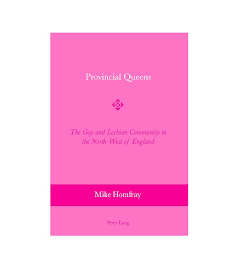There is no perfect health system. It would be nice if there was, but there isn't. And if we were going to puck an ideal, then it certainly wouldn't be the American system. Hugely expensive to run, and beneficial only to those who have the money to pay. Any academic analysis shows that the US alternative is poor value for money and does not cater for those who do not have that money
It has its faults - but if its a choice between waiting for treatment, or as the poor in the US experience, no treatment at all, or the very basics, then its the NHS every time. When health care is provided by markets, then those who cannot financially compete will suffer.
Thursday, August 13, 2009
Subscribe to:
Post Comments (Atom)














6 comments:
Have you looked into the health care system in Korea..... It seems to be good from my experience, everyone has insurance..... though it is not perfect there are aspects I like about it, not needing a GP for specilaist referral etc.
It sounds like a social insurance scheme, similar to Germany (essentially compulsory social insurance).
Its an interesting point about the role of primary care - there has been a trend away from specialism and towards strengthening primary care which is seen as more preventative. However, it does add another 'layer' - I suppose the argument against is that at least it stops everyone trying to see highly trained consultants for minor ailments?
In response to Chris, I am about to return home after a year in Korea, and have had to avail myself of the health system while I've been here.
The first thing to be said is that although it is a complusory insurance scheme for the employed, the costs are far lower, and the insurance coverage far more extensive, than in the US, and not only based upon relative income differences. I paid 50% of contributions while my employer paid the other half. My contribution worked out about 12 pounds per month.
At one point, I had to take 5 different drugs together to combat a severe chest infection - cost to me was 3 pounds per week. I was also given a full raft of examinations for that and another problem I had, the most expensive bill I had was around 50 pounds (total) for two MRI scans which weren't covered on my insurance, but were necessary from a preventative standpoint.
There is a mix of private (but usually a subsidiary of one the so-called national champions, so basically government supported) and directly government run insurers but in my experience the emphasis is proper care first, profit a distant second.
This is much more like the German than the American system, then?
I have been impressed with the Korean system, though they seem to play on fear a bit too much at times, my wife was advised to have an op, whereas in the UK they were amazed that it was even suggested.. Also some maternity wards appear to be owned by formula milk makers with inevitable consequences and there seems to be an obsession with giving birth by C-section in Korea. I think with a bit of regulation, those problems can be ironed out.
As far as I can see the NHS was brilliant as an idea, post-war; but it needed to mature and it has not, it is a glove that refuses to fit no matter how much you force it or patch it.
As for primary care, I have come across GP's who failed to diagnose nappy rash and one, who despite having copies of a scan on their desk along with the consultants report, said to my wife 'you do not have fibroids'. The problem is these are not isolated cases, they are frequent occurences, I hear these stories every week, even taking them with a heavy dose of salt, I must conclude the NHS is dying a long lingering death, and a government needs to have the courage to do something about it.
But this is about medical training - not health care systems. And a good many GP's are trained outside the NHS. I don't think that their dignosis would improve within a different system
I don't think there is a better system available - setting up a social insurance scheme would be a financial impossibility, for example and I think that we do tend to want Swedish-level services at American-level taxes.
I think far too much money is spent on prolonging life: it is all very well keeping people alive but nothing has been done to improve the quality of life as people live longer and longer. This alone has put a huge strain on the NHS, and systems such as those in France and Germany will be particularly hard hit as there are more people in this position than those working - social insurance schemes rely on the opposite.
I don't think there is a perfect scheme but there will no doubt have to be some ongoing re-thinking. Given the choice between the UK and America, I think that the British system is certainly fairer.
http://www.pubmedcentral.nih.gov/articlerender.fcgi?artid=1447690 is an interesting article about Korean health care - seems as if it achieves its aims by running on a large deficit!
Post a Comment